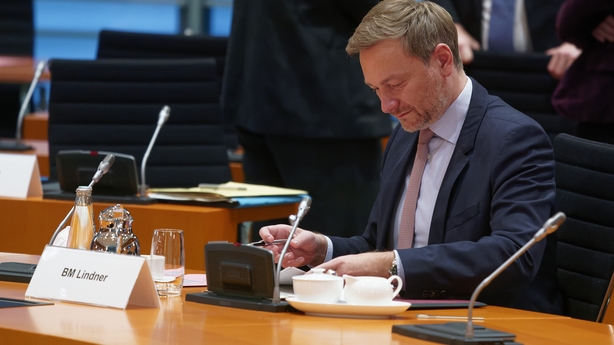German President Frank-Walter Steinmeier has stepped in to mediate discussions between parties deadlocked over the date for early elections brought on by the collapse of Chancellor Olaf Scholz's government.
Germany has been in political limbo since the liberal FDP withdrew from Mr Scholz's three-way coalition last week, depriving his government of a parliamentary majority.
The coalition crisis, rooted in differences over economic and fiscal policy, came to a head when Mr Scholz last week sacked his rebellious finance minister Christian Lindner of the Free Democrats.
Mr Steinmeier was this week holding confidential talks with party representatives "with a view to his role to create understanding", a source in the president's office told AFP.
As well as being in "close contact" with Scholz and conservative opposition leader Friedrich Merz, Mr Steinmeier also spoke to Vice Chancellor Robert Habeck, who will lead the Greens into the election, the source said.
Mr Scholz last week set out his intention to hold a vote of confidence - a key step on the way to dissolving parliament and holding new elections - on 15 January.
The planned date for the vote in parliament would put the country on course for an election in late March.
However the conservatives have pressed the chancellor to hold the vote as soon as Wednesday, opening the way for an election in January.

Mr Scholz's spokesman Steffen Hebestreit told reporters that "the chancellor will not be bringing a vote of confidence on Wednesday".
Mr Scholz has signalled openness to an earlier confidence vote, saying yesterday that it could happen this year "if all sides agree".
The chancellor however wants to make progress on key legislation, such as welfare reforms and constitutional safeguards, before parliament is dissolved.
Read more stories from around Europe
Mr Scholz suggested Mr Merz hold talks with parliamentary leaders over a date but the proposal was rejected out of hand by the opposition.
The Greens, Scholz's remaining coalition partner, have also called for clarity on the election timetable, with outgoing leader Ricarda Lang saying the party was "prepared for anything".
The final date for a confidence vote was however down to Scholz, Mr Habeck told reporters.
"Ultimately, the decision is his," Mr Habeck said.

